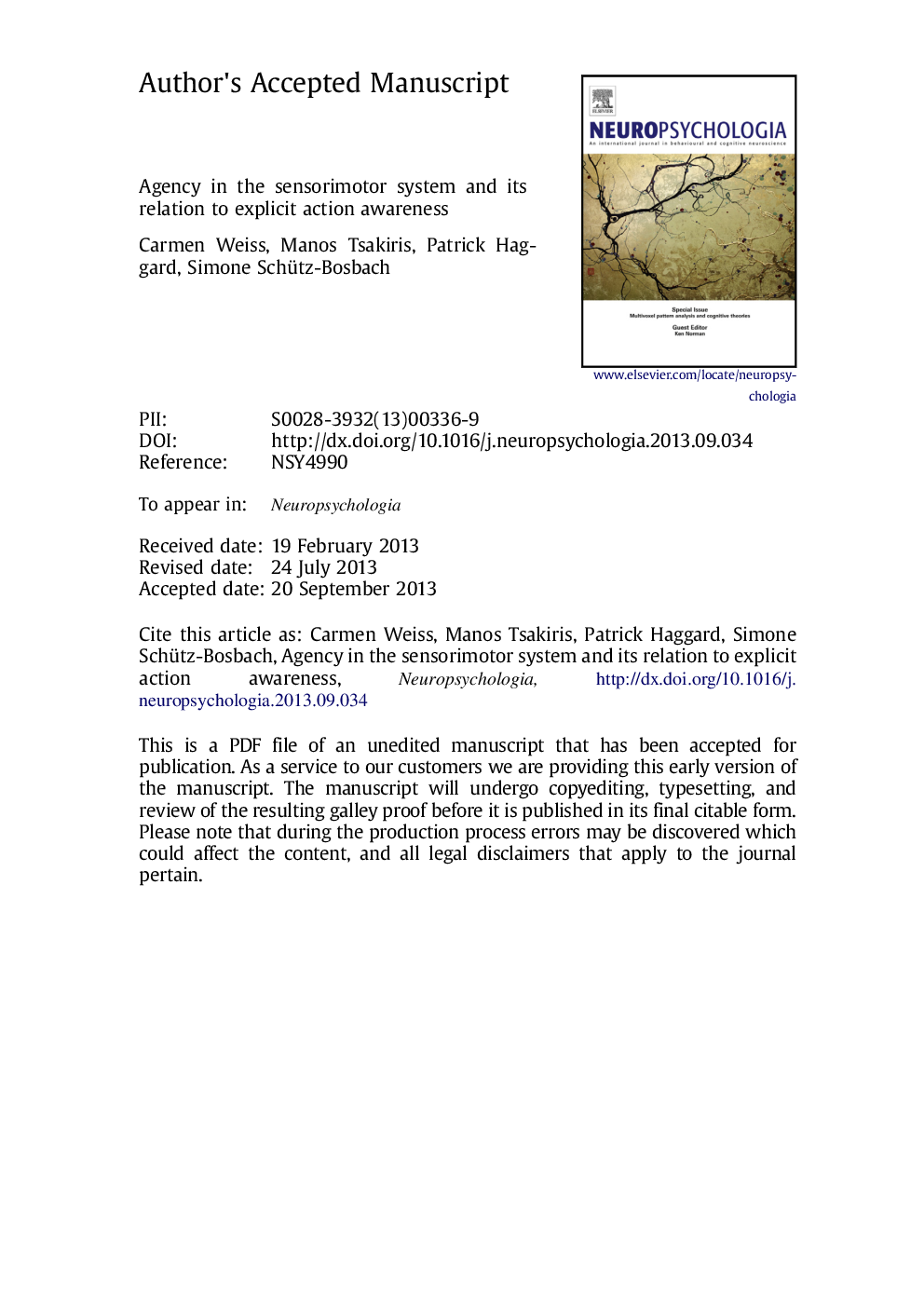| Article ID | Journal | Published Year | Pages | File Type |
|---|---|---|---|---|
| 7321961 | Neuropsychologia | 2014 | 48 Pages |
Abstract
People generally have a strong and immediate intuition whether they are the author of an action or not. Nevertheless, recent psychological studies focused on situations of ambiguous agency. These studies concluded that agency is an inference rather than a direct perception, and is, at least sometimes, illusory. Moreover, shared representations of executed and merely observed actions within the sensorimotor system pose a challenge to the idea that a sense of agency can be grounded within that system. Here, we sought to investigate whether the human motor system is indeed sensitive to whether observed actions are linked to agency or not. In addition, we investigated whether the mere observation of an action has comparable effects on low-level, sensorimotor measures of agency, and on high-level, explicit representations of agency. To this end, we instructed participants to make simple manual movements, and manipulated the temporal correspondence between the movement that they made and the movement that they observed. Motor-evoked potentials to single-pulse TMS were taken as a low-level, sensorimotor measure of agency. To assess explicit representations of agency, participants verbally judged whether or not the observed movement temporally corresponded to the movement they executed. The results showed that corticospinal excitability varied with the degree of temporal correspondence of the executed and observed movements. Moreover, explicit agency judgments could be predicted from corticospinal excitability. This suggests that explicit judgments of agency could be directly based on information within the sensorimotor system.
Related Topics
Life Sciences
Neuroscience
Behavioral Neuroscience
Authors
Carmen Weiss, Manos Tsakiris, Patrick Haggard, Simone Schütz-Bosbach,
